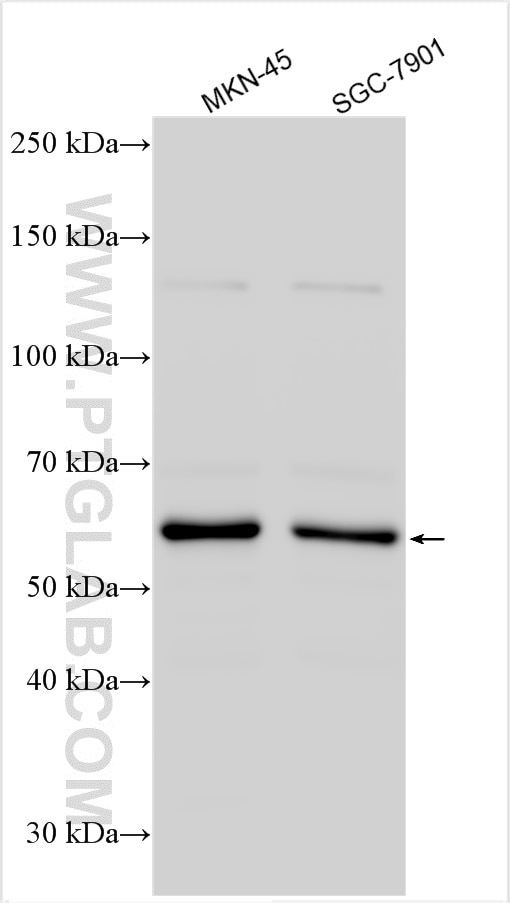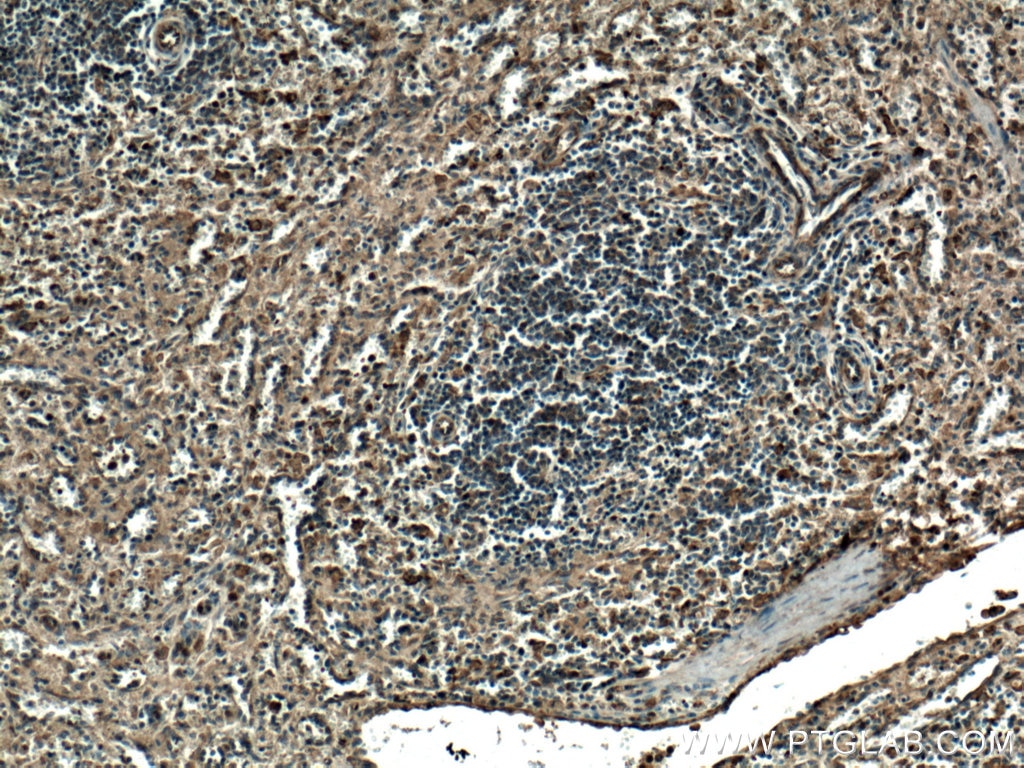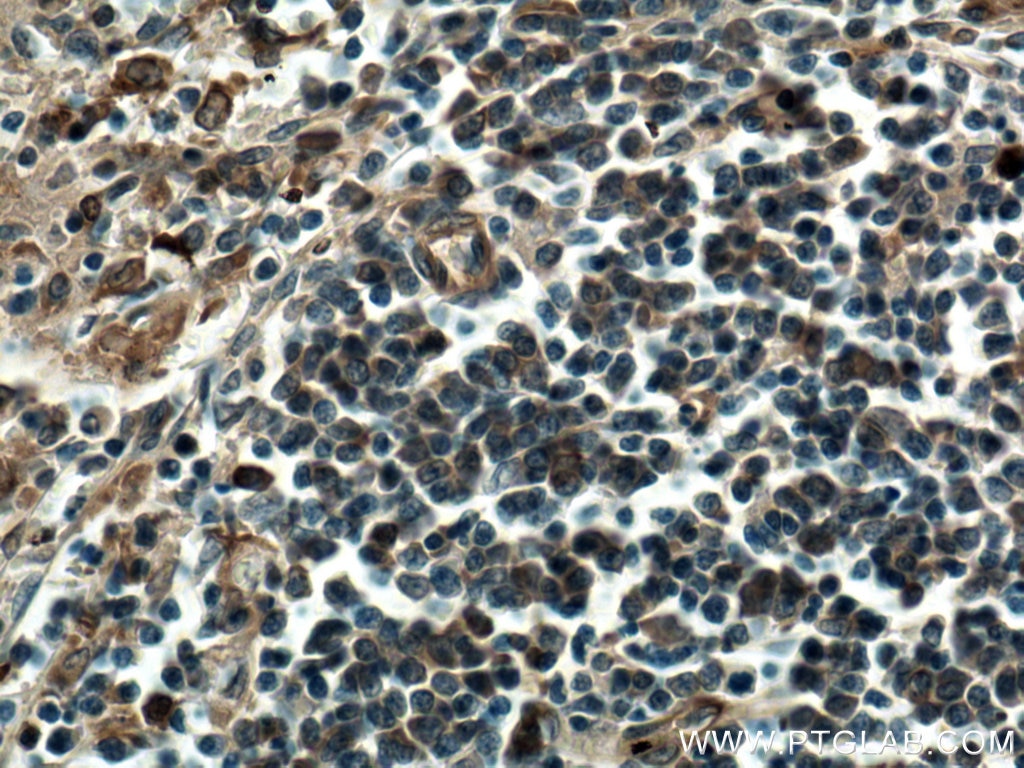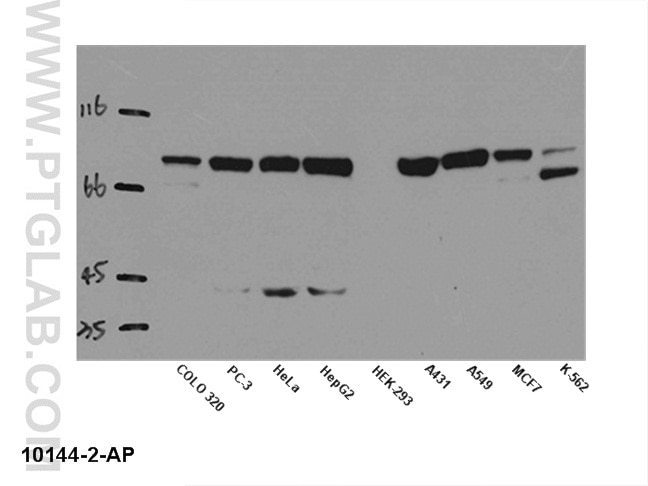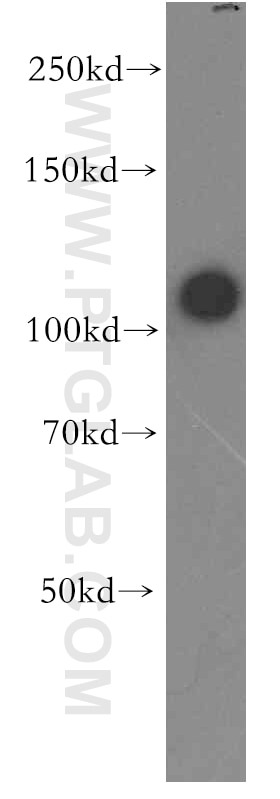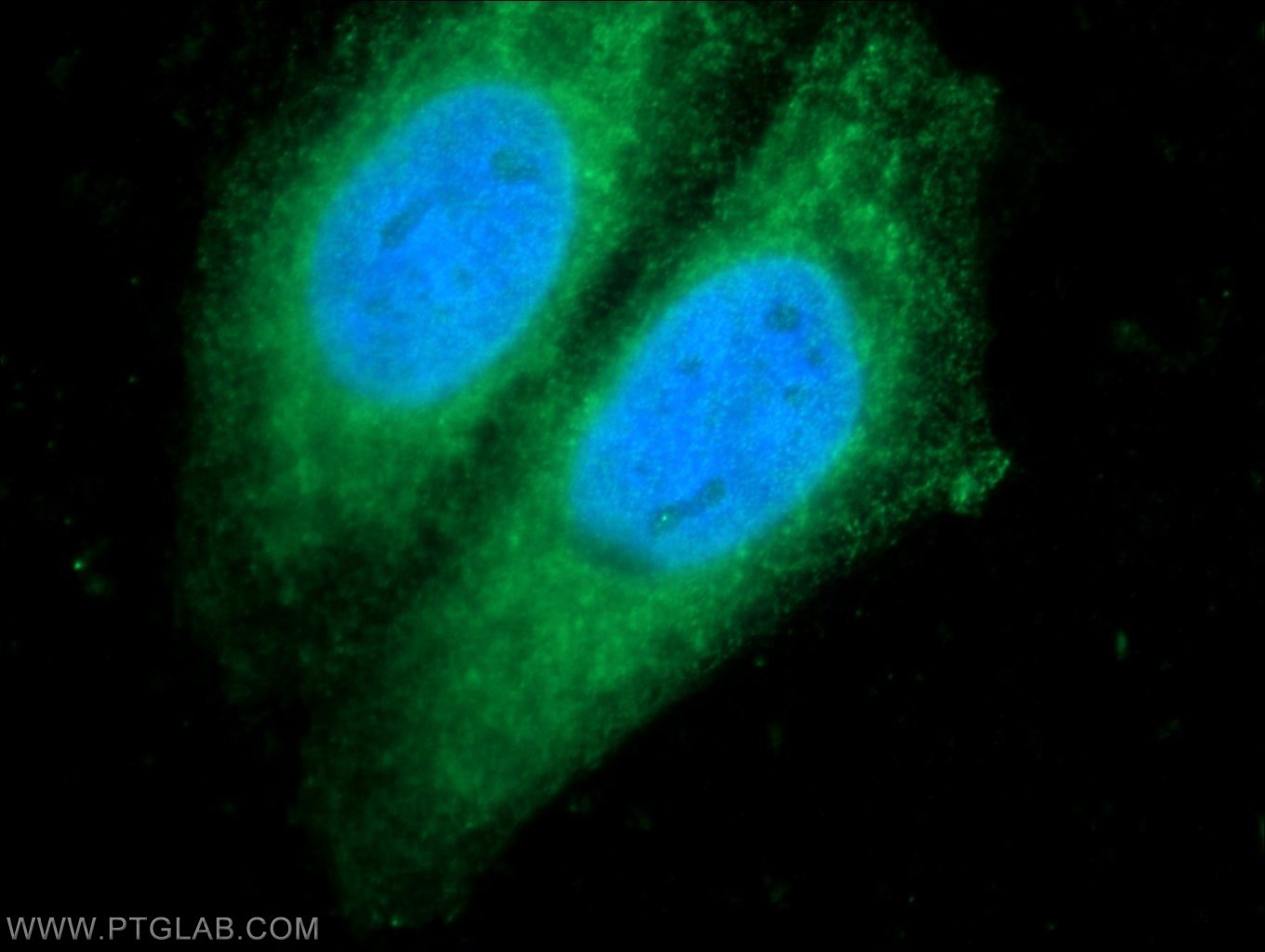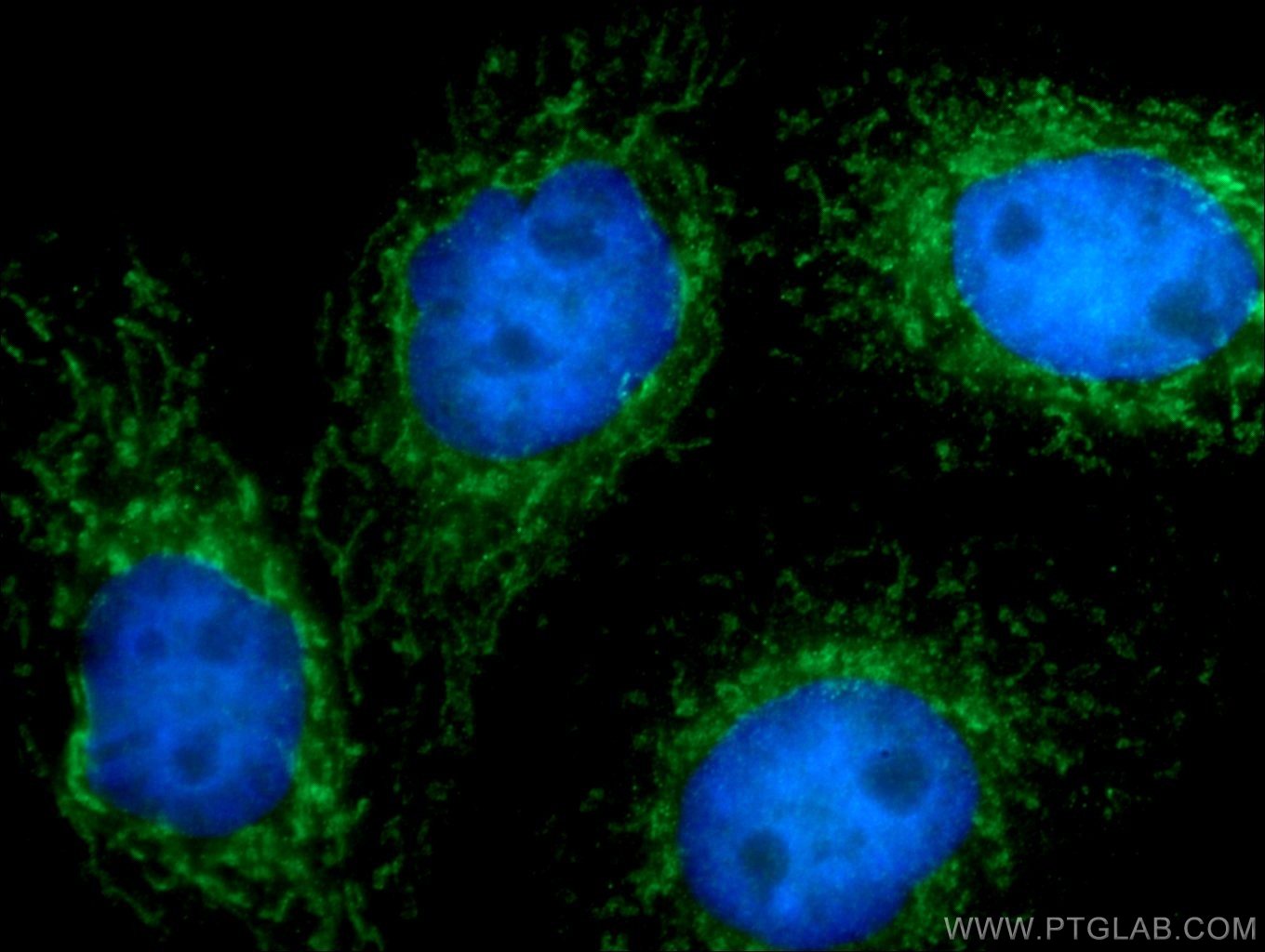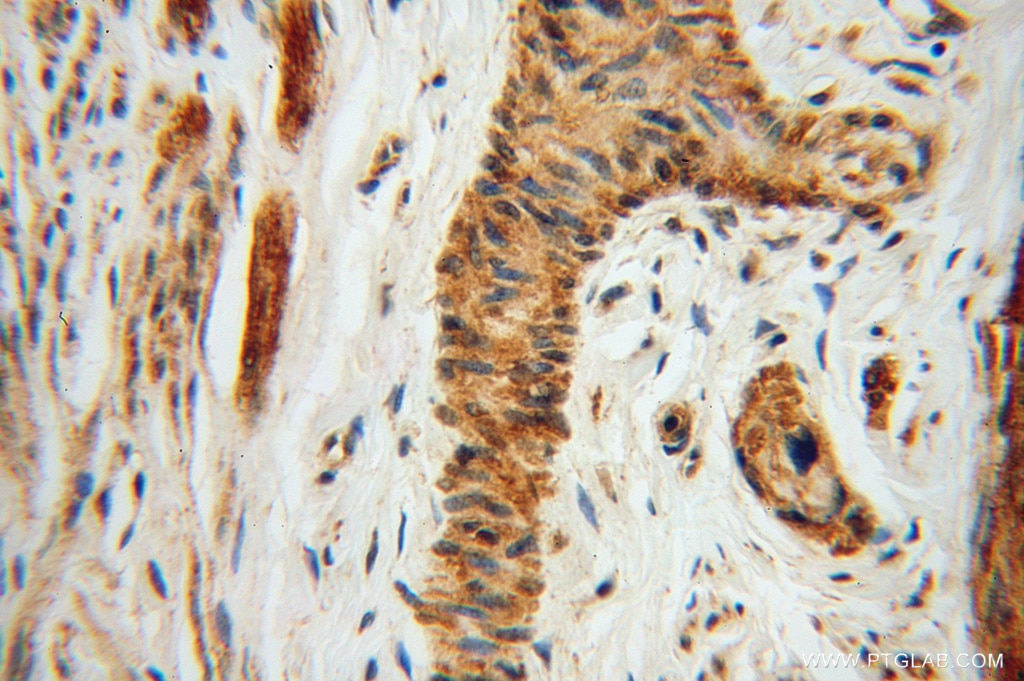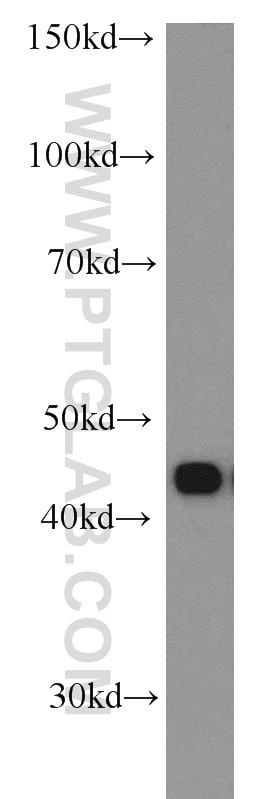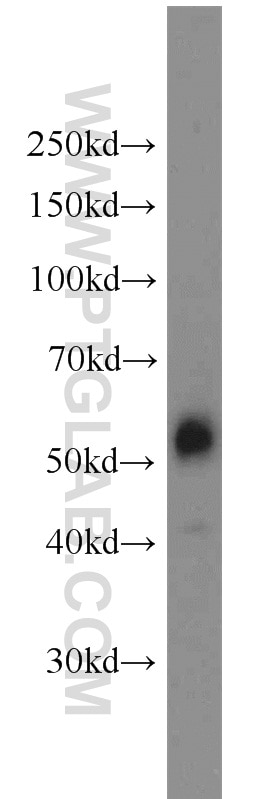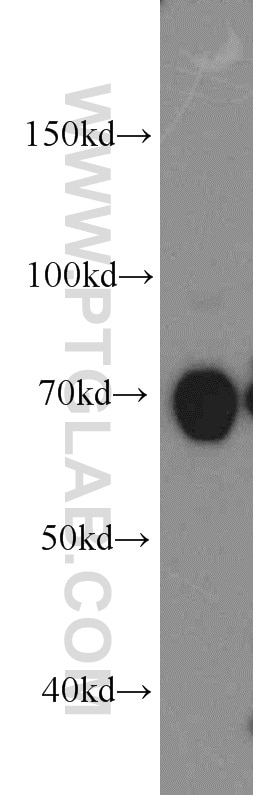- Phare
- Validé par KD/KO
Anticorps Polyclonal de lapin anti-IFIT3
IFIT3 Polyclonal Antibody for WB, IHC, ELISA
Hôte / Isotype
Lapin / IgG
Réactivité testée
Humain et plus (3)
Applications
WB, IF, IHC, ELISA
Conjugaison
Non conjugué
N° de cat : 15201-1-AP
Synonymes
Galerie de données de validation
Applications testées
| Résultats positifs en WB | cellules MKN-45, cellules SGC-7901 |
| Résultats positifs en IHC | tissu splénique humain, il est suggéré de démasquer l'antigène avec un tampon de TE buffer pH 9.0; (*) À défaut, 'le démasquage de l'antigène peut être 'effectué avec un tampon citrate pH 6,0. |
Dilution recommandée
| Application | Dilution |
|---|---|
| Western Blot (WB) | WB : 1:2000-1:12000 |
| Immunohistochimie (IHC) | IHC : 1:50-1:500 |
| It is recommended that this reagent should be titrated in each testing system to obtain optimal results. | |
| Sample-dependent, check data in validation data gallery | |
Applications publiées
| KD/KO | See 3 publications below |
| WB | See 29 publications below |
| IHC | See 3 publications below |
| IF | See 8 publications below |
Informations sur le produit
15201-1-AP cible IFIT3 dans les applications de WB, IF, IHC, ELISA et montre une réactivité avec des échantillons Humain
| Réactivité | Humain |
| Réactivité citée | Humain, porc, singe, souris |
| Hôte / Isotype | Lapin / IgG |
| Clonalité | Polyclonal |
| Type | Anticorps |
| Immunogène | IFIT3 Protéine recombinante Ag7349 |
| Nom complet | IFIT3 |
| Masse moléculaire calculée | 56 kDa |
| Poids moléculaire observé | 60 kDa |
| Numéro d’acquisition GenBank | BC004977 |
| Symbole du gène | IFIT3 |
| Identification du gène (NCBI) | 3437 |
| Conjugaison | Non conjugué |
| Forme | Liquide |
| Méthode de purification | Purification par affinité contre l'antigène |
| Tampon de stockage | PBS avec azoture de sodium à 0,02 % et glycérol à 50 % pH 7,3 |
| Conditions de stockage | Stocker à -20°C. Stable pendant un an après l'expédition. L'aliquotage n'est pas nécessaire pour le stockage à -20oC Les 20ul contiennent 0,1% de BSA. |
Informations générales
IFIT3 (IFN-induced protein with tetratricopeptide repeats 3), also known as IFIT-4, ISG-60 or RIG-G, is a 56 kDa IFN induced protein. IFIT3 has been identified to be associated with strong IFN antiviral activity. Upon RNA virus infection, IFIT3 is significantly induced, ectopic expression or knockdown of IFIT3 could, respectively, enhance or impair IFN regulatory factor 3 (IRF3)-mediated gene expression. IFIT3 thus may serve as an important modulator in innate immunity, revealing a new function of the IFIT family proteins.
Protocole
| Product Specific Protocols | |
|---|---|
| WB protocol for IFIT3 antibody 15201-1-AP | Download protocol |
| IHC protocol for IFIT3 antibody 15201-1-AP | Download protocol |
| Standard Protocols | |
|---|---|
| Click here to view our Standard Protocols |
Publications
| Species | Application | Title |
|---|---|---|
Signal Transduct Target Ther TRAF3 activates STING-mediated suppression of EV-A71 and target of viral evasion | ||
Adv Sci (Weinh) Single-Cell Transcriptomic Analysis of Primary and Metastatic Tumor Ecosystems in Esophageal Squamous Cell Carcinoma | ||
Cancer Lett Induction of IFIT1/IFIT3 and inhibition of Bcl-2 orchestrate the treatment of myeloma and leukemia via pyroptosis
| ||
PLoS Pathog MAVS-MKK7-JNK2 Defines a Novel Apoptotic Signaling Pathway during Viral Infection. | ||
Front Immunol ISG15/USP18/STAT2 is a molecular hub regulating IFN I-mediated control of Dengue and Zika virus replication | ||
J Neuroinflammation Progression of pathology in PINK1-deficient mouse brain from splicing via ubiquitination, ER stress, and mitophagy changes to neuroinflammation. |
